CCHS students question Grassley at Charles City visit
By James Grob, jgrob@charlescitypress.com
It’s often implied that young people today don’t care all that much about what’s going on in Washington, D.C., that they’re disengaged and barely aware of the issues in government.
That didn’t seem to be true Wednesday morning, based on the questions Charles City High School students asked U.S. Sen. Charles Grassley at the high school library.
“Why did you vote against hearing witnesses at the impeachment trial?” was the first question a student asked Grassley, and several tough questions followed over the next hour, on a wide range of topics, as the students took advantage of the opportunity to scrutinize their 86-year-old senator.
“Where do you stand on term limits?” another student asked Grassley, who was first elected to the Iowa House in 1959, to the U.S. House in 1971 and has served in the U.S. Senate since 1981 — about 20 years before any of the students were born.
“In the years I have been in the U.S. Senate, we’ve had a constitutional amendment once to have term limits, and I voted yes on it,” Grassley told the students, who didn’t seem satisfied with the answer. “When you amend the Constitution, it takes 67 votes to get an amendment out to the states, and we didn’t get that, and it hasn’t come up for a vote since then.”
Grassley, for his part, said he was there to answer questions and told the students that any question was appropriate — the students didn’t need to worry about embarrassing him or making him look bad. In fact, he encouraged the students to be tough on him if they wanted to.
“I’m open to any of those kinds of questions,” he said, and added that he tries to go to a few high schools every year to try to “stay in touch” with younger people.
Grassley said that the stop in Charles City was part of his annual visiting of all 99 counties in Iowa. He visited five counties Wednesday, four counties Tuesday and intends to visit three counties on Friday. The U.S. Senate is in recess this week, and Grassley said he will return to Washington, D.C., on Sunday.
Grassley, from New Hartford, is currently president pro tempore of the U.S. Senate and chairman of the Senate Finance Committee. He has previously served as chairman of the Senate Judiciary Committee, among others.
On the issue of not calling witnesses during President Donald Trump’s recent impeachment trial in the U.S. Senate, Grassley said that in each of the previous three presidential impeachment hearings, it was charged that the president had violated laws.
“The House of Representatives, in the case of Trump, did not charge him with any crime,” Grassley said. “They went through a process of calling witnesses, and they didn’t call all the witnesses they could have called. This is the first president impeached who wasn’t charged with a crime, so what was the point of calling witnesses?”
Technically, the U.S. House did charge Trump with two specific crimes which both fall under the Constitutional realm of “high crimes and misdemeanors,” as Trump was impeached on charges of “abuse of power” and “obstruction of Congress.”
Grassley also claimed the House did not “do a very good job” of preparing its case for the Senate.
“The House subpoenaed witnesses and then withdrew their subpoenas,” he told the students.
House members have said they withdrew the subpoenas and asked witnesses to testify voluntarily in order to avoid a long legal battle, as many of the witnesses were claiming executive privilege at the behest of the White House.
Grassley told the students he and his Senate colleagues listened to about 90 hours of testimony in Trump’s impeachment case before coming to a decision.
“He surely did things that were not right, but to pre-empt an election, or to go against the voters’ right to choose a president just a few months before the next election, with no crime being charged, that’s how it ended up, then,” he said.
One student wondered why Trump himself did not testify.
“Presidents don’t testify,” Grassley said. “I was a part of Clinton, and he didn’t testify.”
Although it is true that President Clinton did not testify live before the Senate during his 1999 impeachment trial, the U.S. Senate was shown excerpts from a videotaped, closed-door deposition that had been taken before impeachment proceedings.
The students also questioned Grassley on the issues of gun violence in schools, student debt, polarization in government, global warming and the upcoming presidential election, among other things.
Regarding gun violence in schools, Grassley said that he is working on a bill to help teachers identify students with mental health issues.
“We have had a program in the federal government for the last two of three decades where the U.S. Secret Service and other law enforcement has seminars and schools of instruction where they try to train people to be alert to somebody who has a problem that would lead to violence,” he said.
“My legislation would have the U.S. Secret Service do that for teachers. In the Parkland shooting, there were more than 30 examples of where the teachers or other officials in the school tried to get the Parkland killer to some sort of mental health help.”
Grassley acknowledged it wasn’t the best answer to the student’s question.
“The best answer to your question is we’ve got to do something, not just on gun violence, but on the many issues of mental health,” he said. “We have to get more psychiatrists and more psychologists … that’s a major problem we have. A lot of these people have mental problems.”
Grassley told the students that “partisanship is worse now than it’s ever been,” although he believes Washington, D.C., has been that way since the nation’s founding.
He said that nothing can get done in the U.S. Senate without some degree of bipartisanship, and said that he was among the top four or five most bipartisan senators. He pointed to a bill he’s working on with Sen. Ron Wyden, D-Oregon, that aims to lower drug prescription costs as an example of bipartisanship in the U.S. Senate.
On student debt, Grassley said he was currently working on “a couple of bills to encourage you to not go into so much debt when you go to college.”
He said one bill was called Know Before You Owe.
“You ought to think in terms of not borrowing more money than what you need to borrow,” he said.
On environmental issues, Grassley pointed to his own record on promoting wind energy, biofuels, ethanol and other forms of alternative energy.
“What I’ve been doing for 30 years is having some success now,” he told the students. “In 1992 I got the wind energy tax credit passed, so that’s why you’ve got wind turbines around Charles City now.”
Grassley said that Iowa now gets about 38 percent of its electricity from clean and renewable energy, and that it would eventually be up to 80 or 90 percent.
“Everything that we’re doing and will continue to do, we have no desire to change any of that,” he said. “Basically we need to continue to do what we are doing. We’ve got greenhouse gas output back down to 2005 levels. We can do even better.”
Grassley added that it was important that the United States gets other countries like China and India to “do what we are doing.”
Regarding the presidential race, although Grassley said that he was not involved in the “Democrat” party, he thinks Bernie Sanders will eventually get the Democratic nomination. He added, however, that “if the Democrats were smart, they’d nominate Amy Klobuchar,” who he called a “good candidate.”
“Sanders has a very faithful following, and I think he can even broaden that,” Grassley said. “I don’t mean to imply that if Sanders is nominated that he would become president, but I think in these days — particularly with someone like Trump, who is so unpredictable — you better not make any bets on it.”
Grassley made it clear that as a Republican, he supports Trump’s reelection. He said he believes Trump has been good for the economy and that he has “worked hard” to do in office what he said he would do as a candidate.

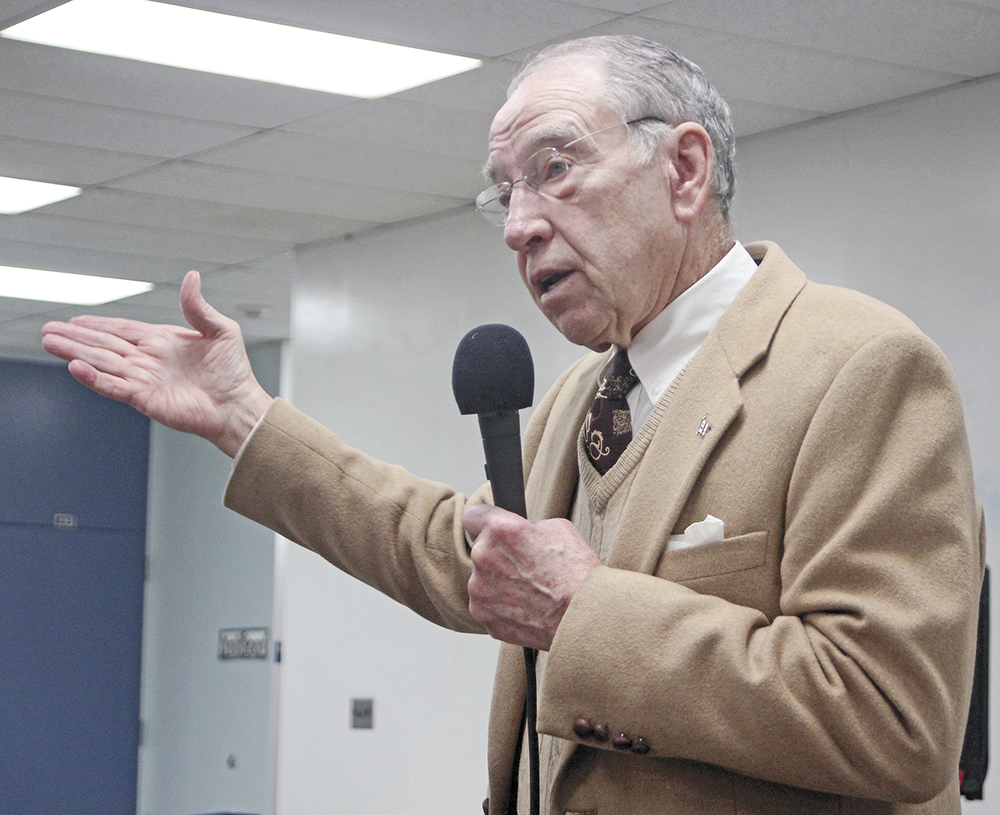
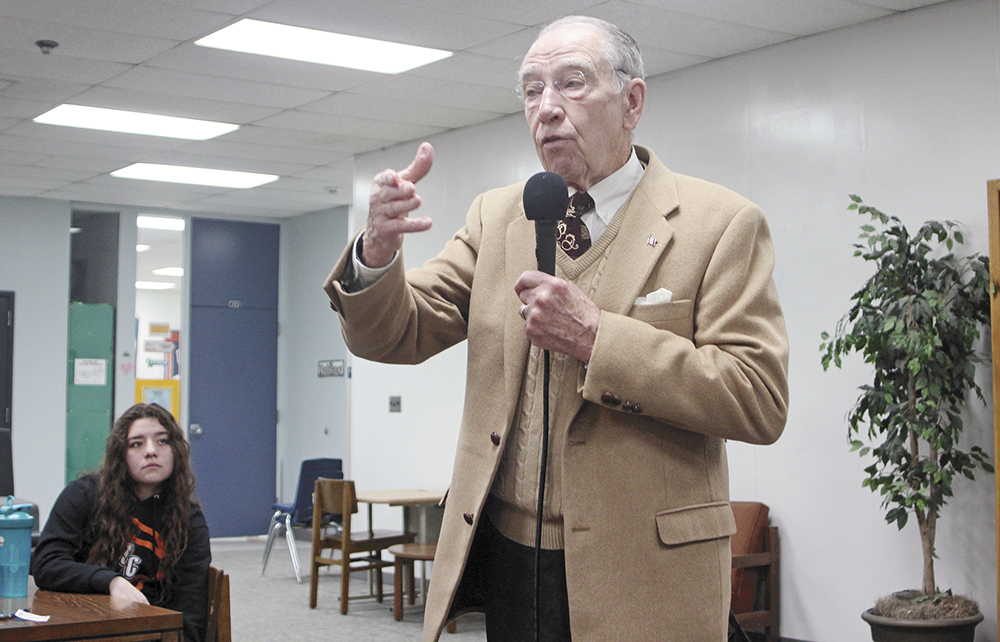
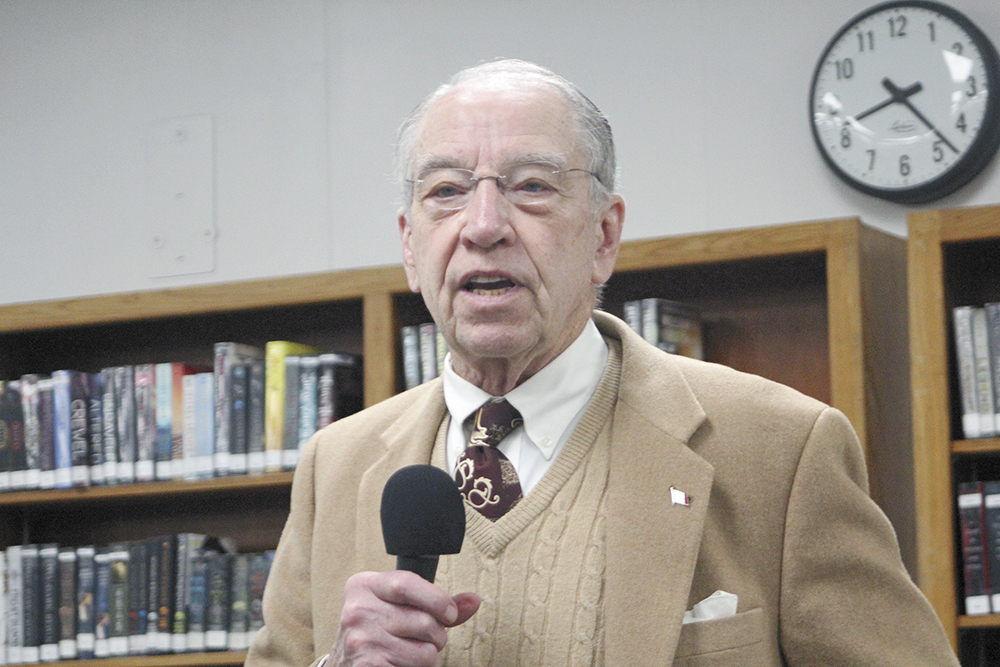
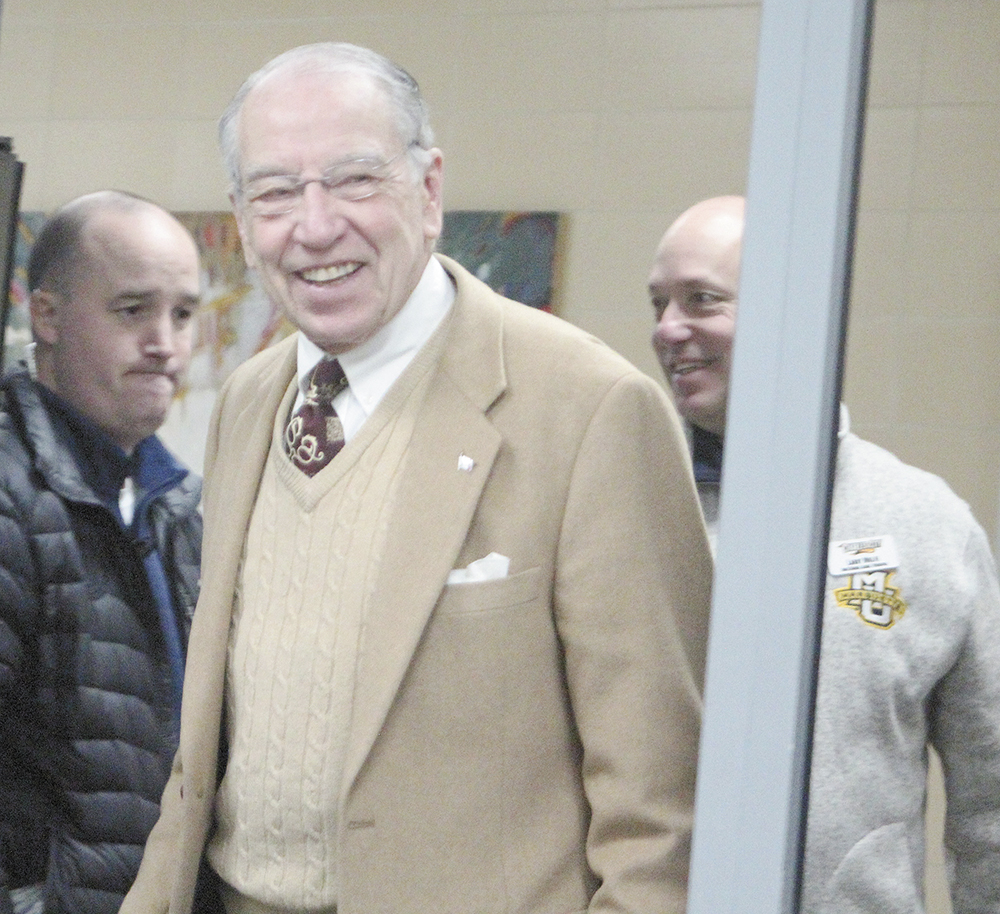

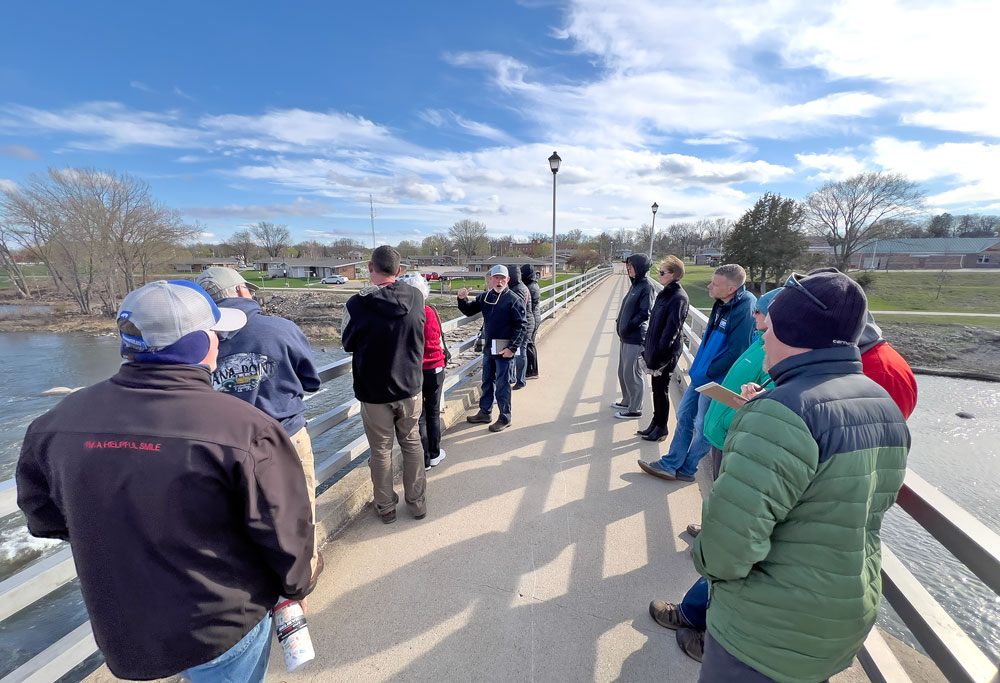
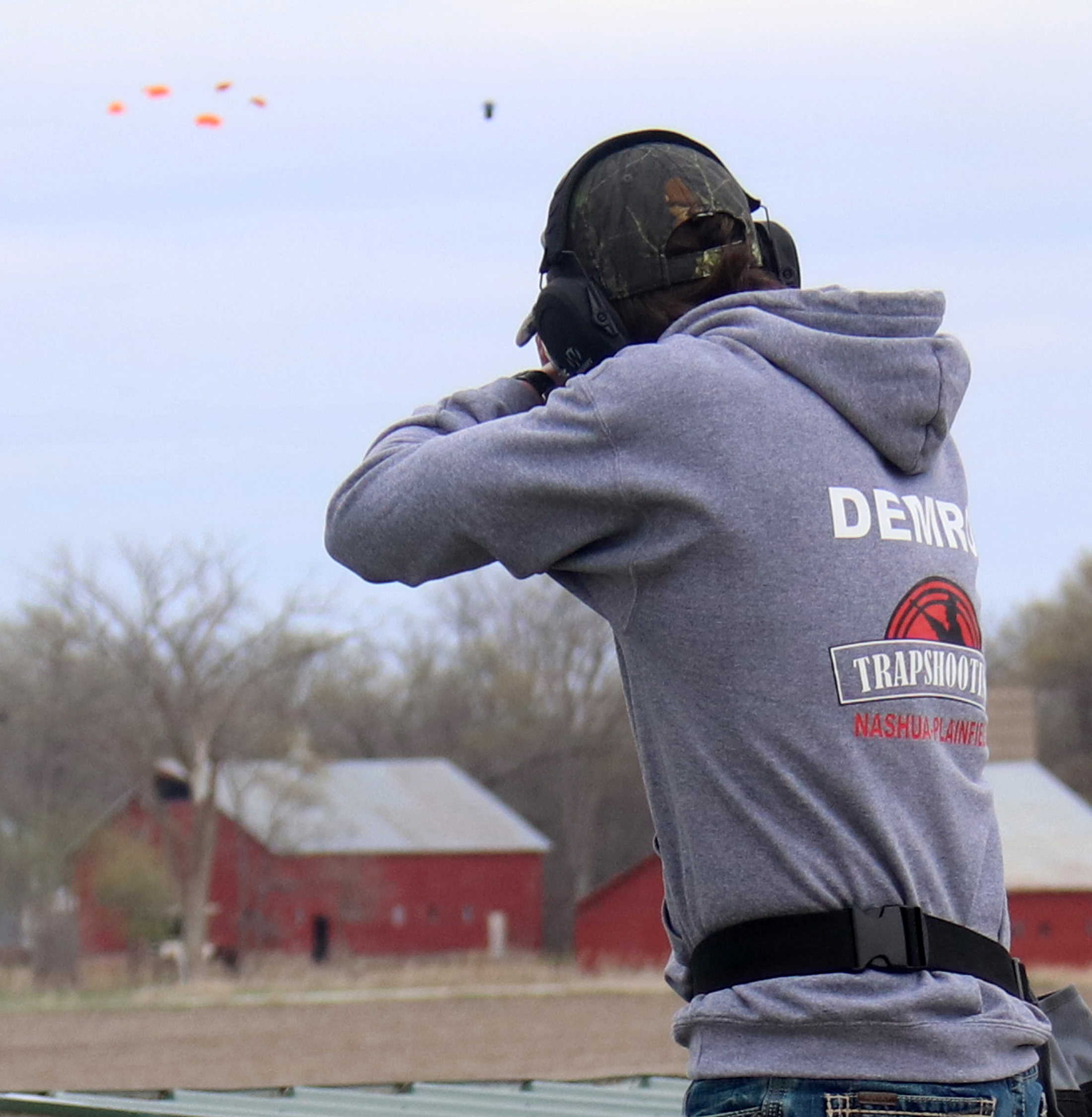
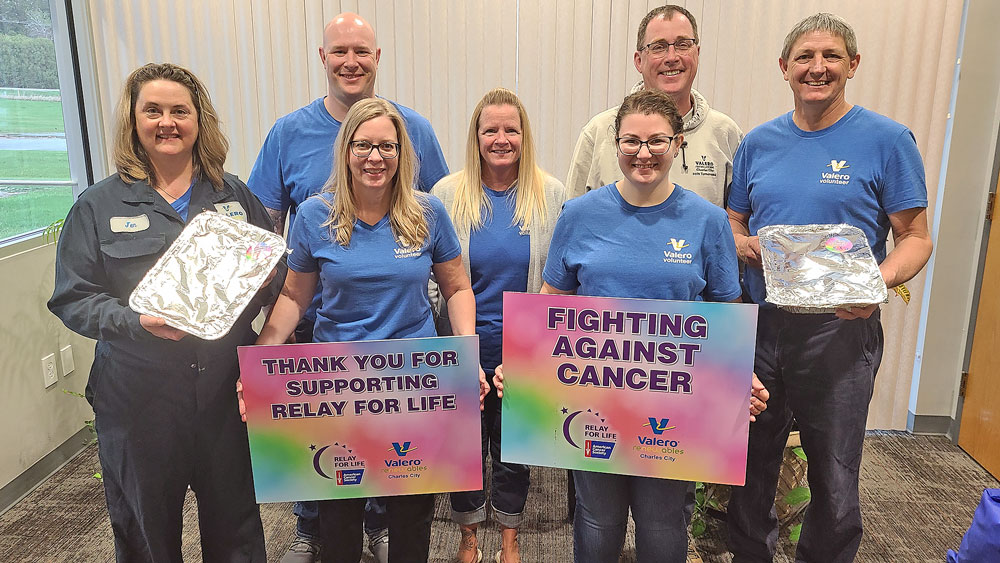


Social Share